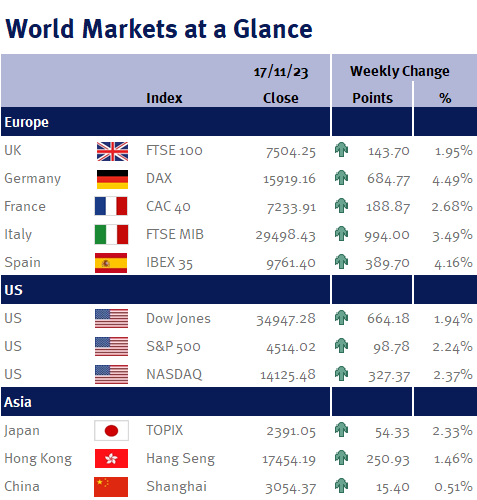Lower inflation rates in the US and UK have injected a fresh wave of optimism among investors. This week, we saw a robust rally in the markets, sparking beliefs that central banks may be hitting the ceiling on interest rates.
It looks like the Fed are now getting to have their cake and eat it, too! On Thursday, US retail sales demonstrated that consumers are feeling the pinch of higher borrowing costs after splurging over the summer, with retail sales dipping by 0.1% in October from a month earlier. While the figure has not slid to the lows that economists predicted – 0.3% – it illustrates that consumer spending is neither gaining momentum nor slipping to a level uncomfortable for continued economic growth– a real sweet spot for the Federal Reserve. The data comes amidst a positive CPI report this month showing that the US is well on its way to hitting their 2% inflation target and statistics showing an encouraging slowing of the labour market.
The US producer price index, which measures prices that businesses pay to suppliers, also fell 0.5% in October, taking price inflation back to pre-pandemic levels. Taken together, the evidence is there that policymakers have done well with their tightening campaign and that they might consider the US to be nearing peak interest rates soon, if they aren’t already.


